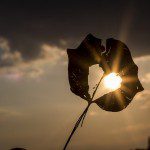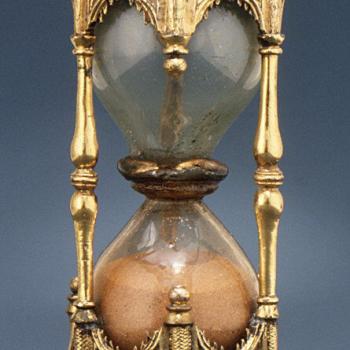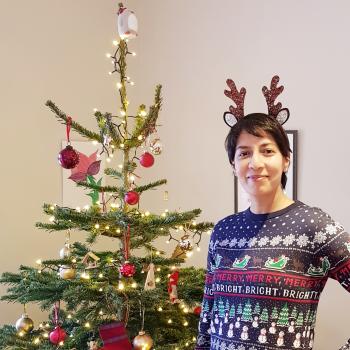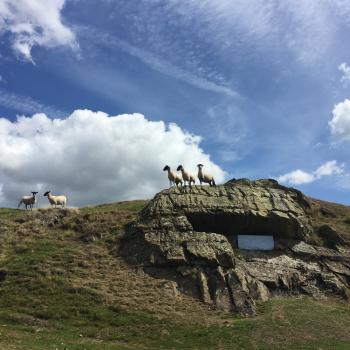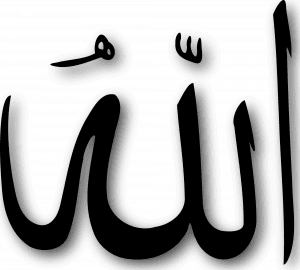
Sayyid Abul Hassan Kharaqani, one of the greatest of Sufi masters said, “Make extraordinary and bold efforts on the Path but remember who the doer is.”
What is the significance of Kharaqani’s guidance to us? What could be extraordinary and bold effort on the Path? After several days of reflection, these words resonated in my heart, “Reflect on the end in order that you may see the beginning.”
“We are for Allah and unto Him we return.”[1] Our life journey is from our Source to our Source. This is our common destiny. As certain as this is, most of us live our lives as if this inevitable return will not happen. Our days are usually consumed with the concerns and urgencies of the world. Our attention is primarily occupied with our likes and dislikes, with seeking pleasure and avoiding pain.
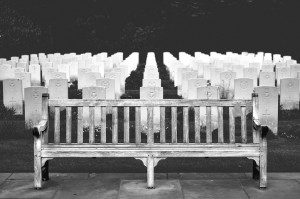
The Quran often mentions death and the importance of building our inner awareness of the Other World (Akhira). The Prophet was very clear on the importance of remembering death, of being conscious of the fleeting nature of this earthly life. He gave poignant guidance to one of his companions urging him to, “Keep death before your eyes!”
Imam Ali continued in the footsteps of the Prophet. He said, “I wonder at a person who occupies himself with what is perishing and abandons what is eternal.” And he advised his son Imam Hussein, “My son, know that from the moment you are born into this world, it is receding from you and the other world is approaching you. So give your attention to that which is coming to you and turn away from that which is leaving you.” Mevlana Rumi speaks often of the fleeting nature of this life and the importance of opening ourselves to eternal life.

Many of us have a framework that views life as a linear period of time that ends with death. But what if the guidance about remembering death is meant to lead us to a transformation of our paradigm? What if it’s about more than the fact that we are destined to die? What if it is guiding us to a radical understanding of our existence that can reorient us towards a greater truth?
If we can learn to expand our attention towards the limitless eternity of the Divine, beyond the limits of our bodily senses, our memories, our conditioned responses, if we can live our lives from Allah’s divine perspective this would be truly extraordinary! If we live from the perspective of timelessness, limitless abundance, certainty of the flow of our sustenance, unqualified forgiveness, and unconditional love this would be indeed a bold living! This would be living in this world but being of the other world. This would make us of the Prophets.

What bold and extraordinary effort could emancipate us from being enslaved by an ego that is itself imprisoned in the cage of this earthly body? The great Sufi masters often say that we need to give up our own existence. What does this mean? How do we become non-existent while we’re still embodied? Our own existence says, “I am the cause. The universe revolves around me. Everything that happens is because of me. Outcomes are due to my efforts. I determine the results of life.” When we are trapped in our own limited sense of existence our perspective is confined to, “I am the center of the Universe!” And we cannot see the real Doer. And in this state our experience of life is narrow and constrained. We are stuck in the world of gain and loss. We are doomed to a repetitive cycle of wishful thinking, disappointments, blame, fear and sorrow. In this state, we can only see and understand life’s experience from our own limited perspective of what we want rather than seeing a greater purpose. This distorts reality and keeps us trapped in the illusion that life depends on us.
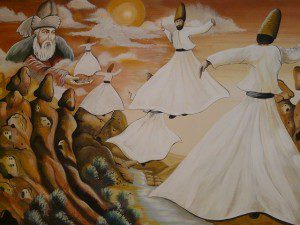
Mevlana Rumi gives us guidance in the Mathnawi on how we can go beyond our limitations (Book I: 3178-3182):
Cut back a little on sleep and food
Bring this gift for your meeting with Him
Become scant of sleep in the night
Be seeking forgiveness in the pre-dawn
Stir a little like an embryo,
In order that you may be given the senses which behold light
And you can become outside this womb-like world
And go from earth into a wide expanse.
Know that the saying, God’s earth is wide
Refers to that ample region where the prophets have entered
The bold and extraordinary effort is in taking our body beyond its accustomed limits with sleep and food and entering the world of the night travellers, the lovers who spend the night time in intimate conversation with their Beloved. It is to follow in the footsteps of, “O you who are enshrouded, stand for most of the night…”[2] and “Remember the name of your Rabb and devote yourself to Him with utter devotion.”[3]
And Mevlana proceeds to remind us of who the Doer is (Book I: 3187-3188):
The saints are the Men of the Cave, O obstinate one
They are motionless while rising up and turning to and fro
He is drawing them, without them taking on the burden of action
Without proclamation, to the right and to the left
Remembering the real Doer is to be in a state of surrender. To be in stillness and peace with whatever is, to be ever watchful over the heart, being patient during contraction and grateful during expansion. It is to remember that our action is part of a greater whole. It is to realize the truth of, “…My Rabb has encompassed everything with knowledge…” When we reach understanding that we are an integral part of a majestic and beautiful oneness, and that there is a universal consciousness (Aql Kulli) that encompasses our own consciousness then we will come to know the meaning of “Die before you die”.
[1] Quran 2:156
[2] Quran 73:1-2
[3] Quran 73:8

